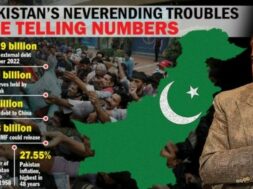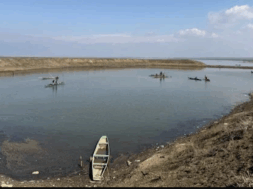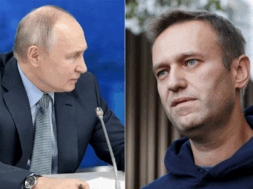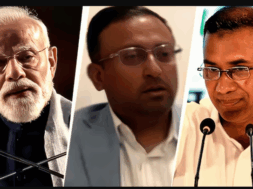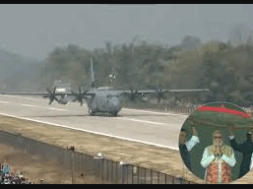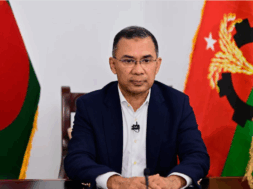
Roving Periscope: Deadlock with IMF pushes Pakistan closer to Sri Lanka-type default
Virendra Pandit
New Delhi: In a broke Pakistan, chickens may be coming home to roost as Islamabad stews in its own juice. And the country of 220 million poor people, ruled by the gangs of a few dozen billionaires with an iron hand, Islamist rhetoric, and terrorist mindset, may push itself into a dustbin soon as, unless rescued from the precipice, it won’t be able to import even food or medicines after this month.
Since 1958, Pakistan has begged loans from the IMF as many as 23 times.
The last week’s developments are alarming.
The International Monetary Fund (IMF)’s rescue mission, led by Nathan Porter, returned to Washington on Thursday without announcing any decision on Islamabad’s fervent request for a USD 7 billion bailout package, pushing the South Asian country closer to a Sri Lanka-type default on a total global debt of over USD 127 billion.
The media reported on Friday that the deadlock persists as the IMF and Pakistan failed to reach a staff-level agreement to immediately unlock the USD 1.18 billion loan tranche after “tough” talks from January 31 to February 9, leaving Islamabad high-and-dry.
Even if the IMF bails Pakistan out for now, its strictest conditions—including forensic audit of all government accounts—are set to start a chain reaction with price rise, inflation, and other crises deepening beyond imagination. Already, inflation has skyrocketed to 28 percent, the highest in 48 years, as food wars on Pakistani streets have made global headlines in recent weeks.
According to some reports, the deadlock came mainly on two issues: reducing Pakistan’s defense budget and disclosure of assets accumulated by army officials, politicians, and bureaucrats. On all other IMF conditions, the embattled Shehbaz Sharif government was ‘ready to sign on the dotted lines,’ even if it meant surrendering the sovereignty of the country.
Amid uncertainties over whether the IMF will or will not provide a bailout, even Pakistan Finance Minister Ishaq Dar could not hold a pre-announced press conference nor did he make any official announcement, making observers wonder whether the negotiations with the IMF had collapsed.
In a statement released late Thursday night, Pakistan’s Finance Secretary Hamed Sheikh, without revealing much, said that “an agreement has already been struck with the IMF on prerequisite measures,” the media reported.
“The negotiations with the IMF have been completed. The IMF has handed over the MEFP (Memorandum of Economic and Financial Policies) document (to Pakistan),” he added.
He said the international creditor has told Pakistani authorities to strike a staff-level pact in the coming days and that the “agreement for releasing the loan will also be signed soon.”
“All matters between the IMF and Pakistan have been agreed upon,” he claimed, adding the global lender also analyzed sources of foreign inflows. The IMF mission will release a detailed statement after Washington’s approval.
During the policy-level talks, the IMF expressed reservations over the projections made by Pakistan’s Ministry of Finance about external financing inflows from multilateral, bilateral creditors and commercial loans. The IMF’s loan is critical for Pakistan’s economy as the State Bank of Pakistan (SBP)-held foreign exchange reserves have dropped from USD 3.09 billion last month to a measly USD 2.91 billion, sufficient for imports only until Valentine’s Day.
The balance USD 6 billion bailout package has been repeatedly stalled after former Pakistan Prime Minister Imran Khan-led government reneged on subsidy agreements and failed on its tax collection commitments outlined in the deal. Pakistan PM Shehbaz Sharif-led government resumed the program and received a commitment for around USD 1.17 billion in August.
Later, the program stalled again in September at the time of the ninth review as Pakistan failed to live up to its conditions with the IMF and initiated some fiscal measures in contravention of the conditions agreed. Later, the government agreed to IMF’s conditions as the foreign exchange reserves continued to plummet to dangerously low levels.
